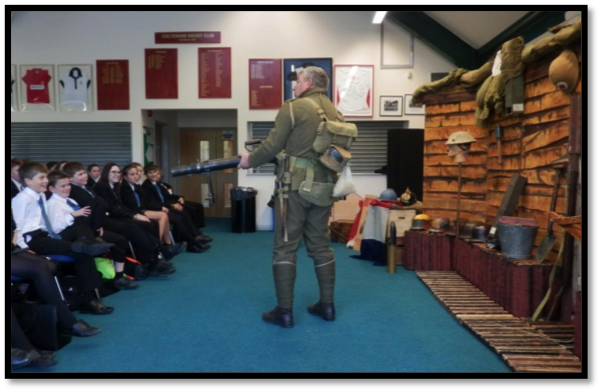History
Welcome
"Our history curriculum is designed to equip our students, regardless of their starting point, with a wide range of historical knowledge and skills, enabling them to fulfil their potential and realise their ambitions in the pursuit of becoming excellent historians as they progress through the Key Stages. "
The curriculum aims to:
- offer historical breadth, historical balance and relevance
- develop all the essential key historical knowledge within our curriculum, building on the historical understanding and vital skills of historians, regardless of gender, ability, ethnicity or social background
- ensure equal access to learning for all pupils, with high expectations for every pupil and appropriate levels of challenge and support as the curriculum builds in terms of complexity
- encourage students to enjoy history
- foster disciplinary literacy skills across key stages
- foster cultural development through research, engagement with scholarship to “embrace the inner geek”.
- support pupils’, social and cultural development through a study of British history at the local, national and international level.
- generate a wealth of cross-curricular activities including events, clubs, and trips
- equip pupils with the knowledge and cultural capital they need to contribute positively to their community as British & global citizens
- promote British values, including the rule of law, democracy and individual liberty.
- prepare students for the next stage in their lives by encouraging resilience, self-reliance and an understanding of their responsibility to take ownership of their own learning as they build skills as historians
Curriculum journey
|
By the end of Year 7 Historians will…
|
|
By the end of Year 8 Historians will…
|
|
By the end of Year 9 Historians will…
|
|
Year 10 Historians will..
|
|
Year 11 Historians will..
|
|
Year 12 Historians will..
|
|
Year 13 Historians will..
|
Curriculum Map
|
|
Autumn 1 |
Autumn 2 |
Spring 1 |
Spring 2 |
Summer 1 |
Summer 2 |
|---|---|---|---|---|---|---|
|
Year 7 |
||||||
|
Year 8 |
||||||
|
Year 9 |
||||||
|
Year 10 |
||||||
|
Year 11 |
|
|||||
|
Year 12 |
Truman |
Social Britain– Economic 1783 – 1812 Truman |
Political Britain1812 – 1832 |
Social & Economic 1812 – 1832 |
NEA Prep and Planning & Year 12 Consolidation |
|
|
Year 13 |
Johnson |
Social- Economic Britain 1832- 1846 Johnson |
Nixon |
Social & Economic Britain 1846 – 1885 Ford & Carter |
Britain up to 1885 Revision |
|
|
Year 12 Politics |
& |
|||||
|
Year 13 Politics |
|
We have four full-time teachers: Mr. Michael Stoker, Mr. Patrick Taylor, Miss Anna Jowett, and Mr. Andrew Harding. Our Head of Sixth Form, Mr. Darren Leatherbarrow, also contributes to our teaching.
Our department is housed in a dedicated suite of five classrooms, including a multi-purpose computer room and a seminar room specifically for sixth form students. We are proud to offer exceptional mentoring to trainee teachers year after year.
We take great pride in our department’s appearance and are delighted to have consistently ranked in the top three departments in the school display competitions for the past five years.
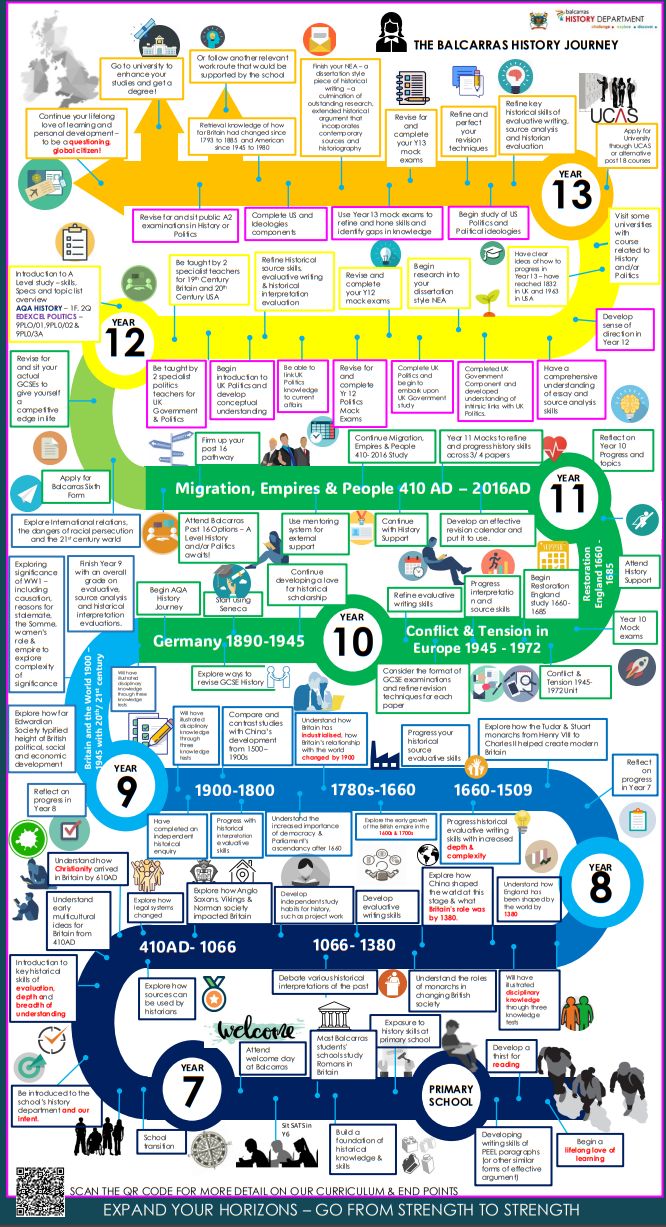
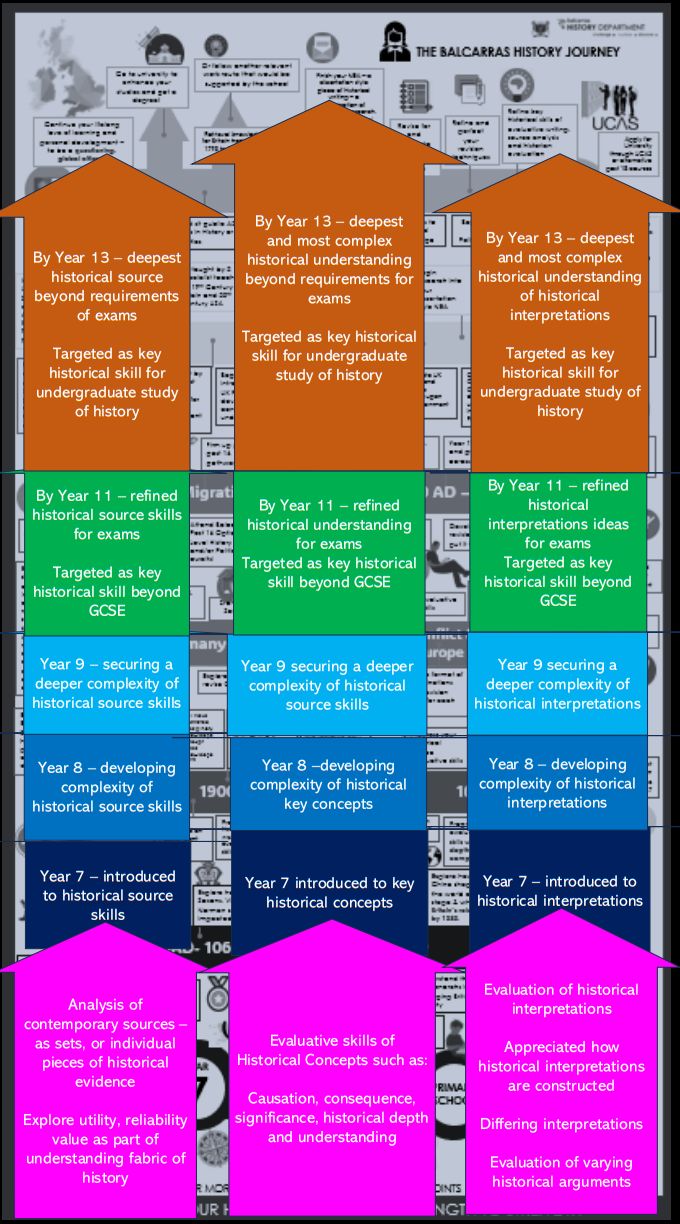
A summary of the major features of our curriculum are listed below.
Key Stage 3
From KS3 to KS5 we ensure that we provide excellent teaching and aim high, always teaching to the top. We are proud that our KS3 curriculum is current, up to date and inclusive. Our overall approach to KS3 History is to study British History chronologically from the Medieval period to the 20th century. Alongside this we also study a number of comparative international courses. Please see the accompanying information for more curriculum specifics.
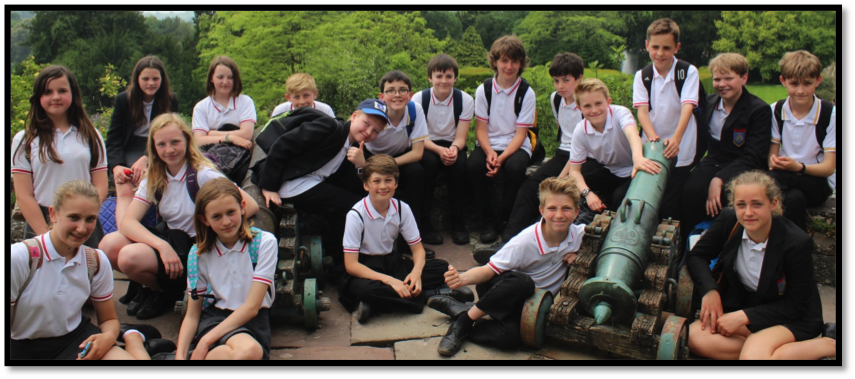
Other events for KS3 students
One of the most successful activities run by the department at KS3 is our modelling club. Over the years the club has produced models of several significant battles including Waterloo, D-Day and Rorkes Drift. Currently students are working on a Battle of Britain dog fight as well as their own individual projects. We regularly apply for PTFA funding to sponsor our ongoing projects.
GCSE
GCSE uptake is very strong, with History remaining one of the most popular option subjects. We began teaching the reformed GCSE in September 2016, following the AQA specification.
For Paper 1, we cover Germany (1890–1945) and the Cold War (1945–1972). In Paper 2, students study a thematic course on British history, from 790 AD to the present day, focusing on migration and the development of empire. The final unit of Paper 2 is a depth study on Restoration England (1660–1685).
Our students consistently perform above the national average in GCSE History, and we strive for continued excellence in this subject.
One of the most popular elements of the GCSE course is the enrichment trip to Berlin. This trip provides an excellent opportunity for students to understand the modern courses we study in an active and engaging way. We visit a variety of places in and around the city including Sachsenhausen concentration camp, the Reichstag and many other sites of importance.
A Level
A Level performance is also very strong. One in three of our students goes on to study History or related degrees at Russell Group universities, and we take great pride in our success in helping candidates gain admission to Oxbridge.
Our department regularly hosts guest speakers, university lecturers, and talks, alongside enrichment opportunities shaped by pupil voice.
In recent years, we have supported A Level trips to Berlin, New York, the British Supreme Court, and the Houses of Parliament. We are always looking to adapt and expand our trips, so keep an eye out for future opportunities.
Our A Level results have been consistently impressive. Since the introduction of the new specification, an average of 66% of our students have achieved A*-B grades, with over 92% attaining A*-C grades.
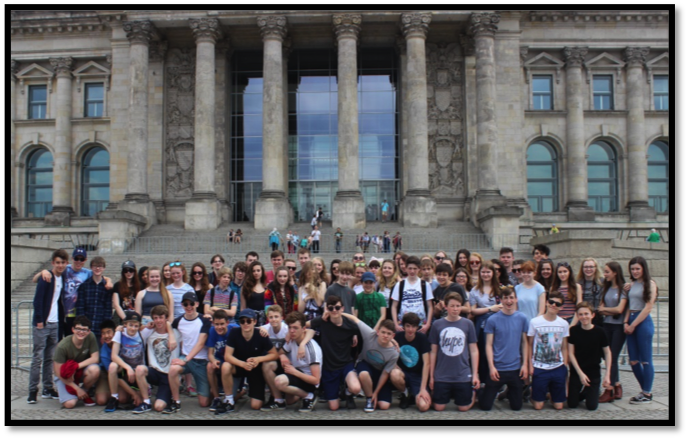
We have in recent years organised a study visit to New York in October half term and this occurs every two years. Keep an eye out as are always looking to adapt trips. Our results at A level are also very successful since starting the new specification we have had an average of 62% of our students getting A*-B and above 92% of A*-C.
A Level Politics
From September 2009 the department has offered A level Government and Politics. In year 12 students study British politics and in year 13 they study the development of political ideologies. The course is taught in a variety of ways and in particular there is a real emphasis on students engaging with current affairs in order to bring their knowledge and understanding up to date.
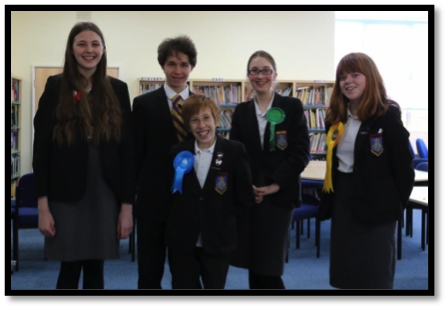
Performance in Politics has been steadily improving. The average A*-B grade achievement is 58%, with approximately 88% of students attaining A*-C grades. Many of our Politics students proceed to study Politics, International Relations, and related subjects at the degree level.
As well as this we go on a number of visits and arrange talks. In recent years the department has organised a school mock elections and mock referenda. The most recent election we were very fortunate to have the Conservative, Labour and Liberal Democrats deliver excellent speeches to students from our entire school. Our students have also recently taken part in a model United Nations day in Oxford and are regular participants in Youth Parliament and Young EU discussions. We regularly host special guests ranging from MPs, Mayors, Ambassadors and more.
Trips
We have a number of study visits including a comparison visit to Chepstow and Berkeley Castles, Parliament, The Commandery in Worcester, and the Imperial War Museum to support students in studying across all the different key stages. We also run a guided visit to the WWI battlefields in France and Belgium every activities week for Year 8s. As well as this we organise a number of visits from various historical backgrounds such as a WWI Tommy, local museum curators, and even guest professors from leading universities.
